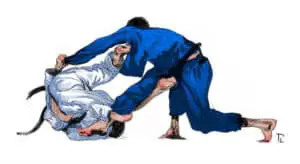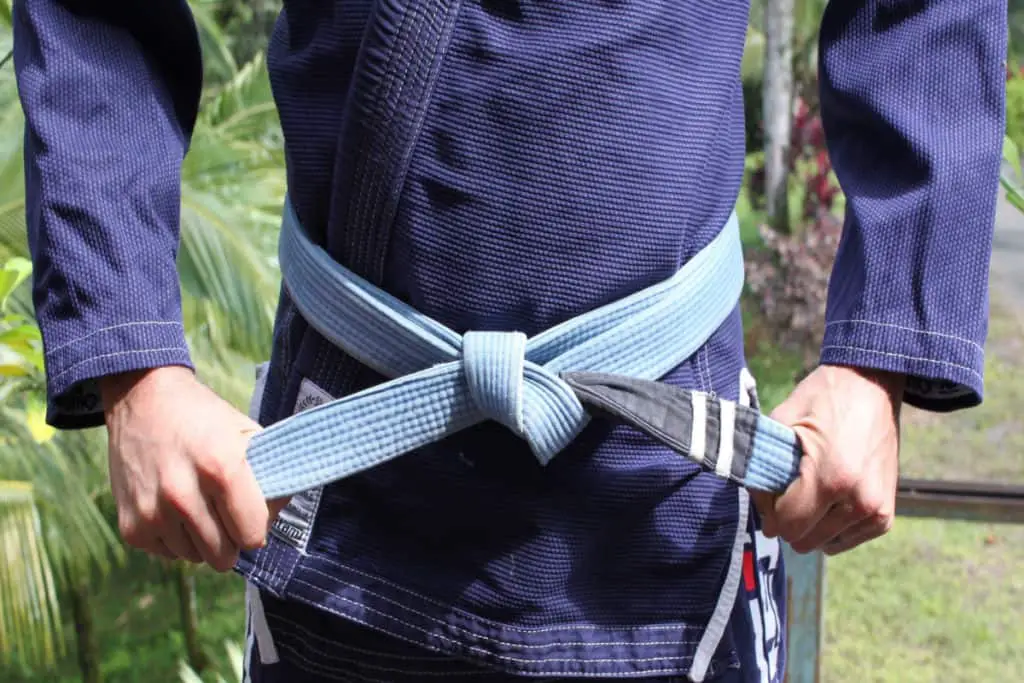
Many BJJ practitioners quickly fall in love with the sport and dive head first in, training multiple times a week, competing, buying a bunch of gis, attending seminars and living the quintessential Jiu Jitsu lifestyle.
Interestingly, once these keen BJJ students receive their blue belts after training for 1 to 2 years a significant percentage hang up their gis and quit Jiu Jitsu for good. This phenomenon is known as the blue belt blues, something we will explore in depth.
Why Do So Many Blue Belts Quit BJJ?
Many blue belts quit BJJ because they become bored of the sport or struggle to make progression and find another hobby. A number of blue belts suffer too many injuries to continue training. While others find that work and family commitments take up too much of their time.
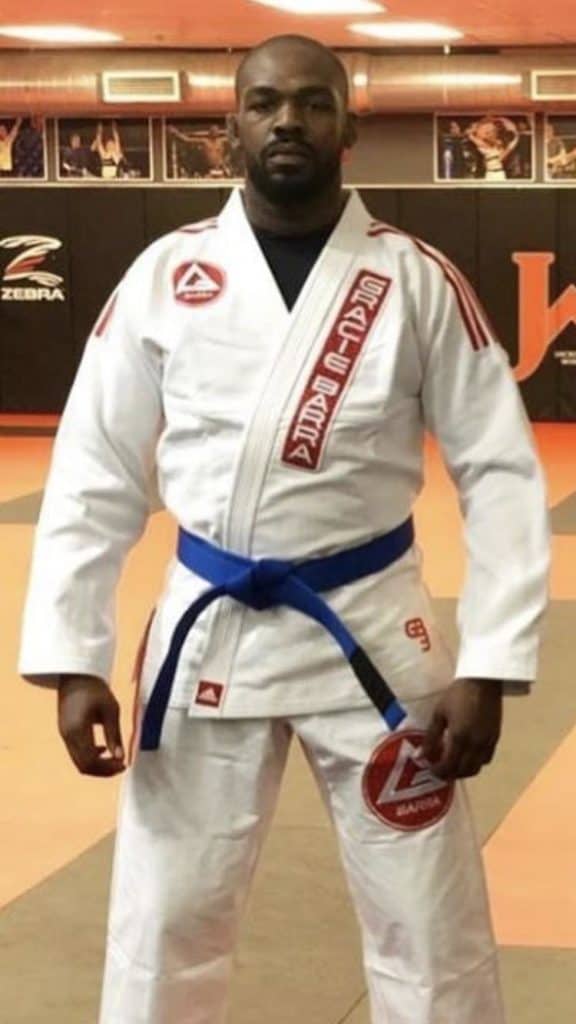
It would be nice to think that there is some strange conspiracy that causes so many blue belts to abandon their Jiu Jitsu goals but unfortunately the truth is often a little more mundane than fantasy.
BJJ Blue Belts Become Bored And Quit Jiu Jitsu

The major reason blue belts quit BJJ is simply because it becomes boring. People rarely stick with hobbies for prolonged periods of time. In most cases people will try different sports and activities for a couple months or even a few years if they really get into it before moving onto something else.
This behaviour pattern perfectly coincides with when most BJJ students receive their blue belt. Once a BJJ practitioner finally achieves their blue belt they would have been training for 1 to 2 years and even if at one point they were obsessed with BJJ after this time period most people’s passion for their favourite hobby is tested.
The boredom that sets in after undertaking a hobby for hours and hours every week becomes too much for a lot of blue belts who invariably decide to dedicate their time to other pursuits. I’ve known many blue belts who have decided to quit BJJ and pursue other sports. It is common for former BJJ students to get into powerlifting, crossfit, Olympic weightlifting, climbing, surfing.
BJJ Blue Belts Struggle To Improve And Quit Jiu Jitsu
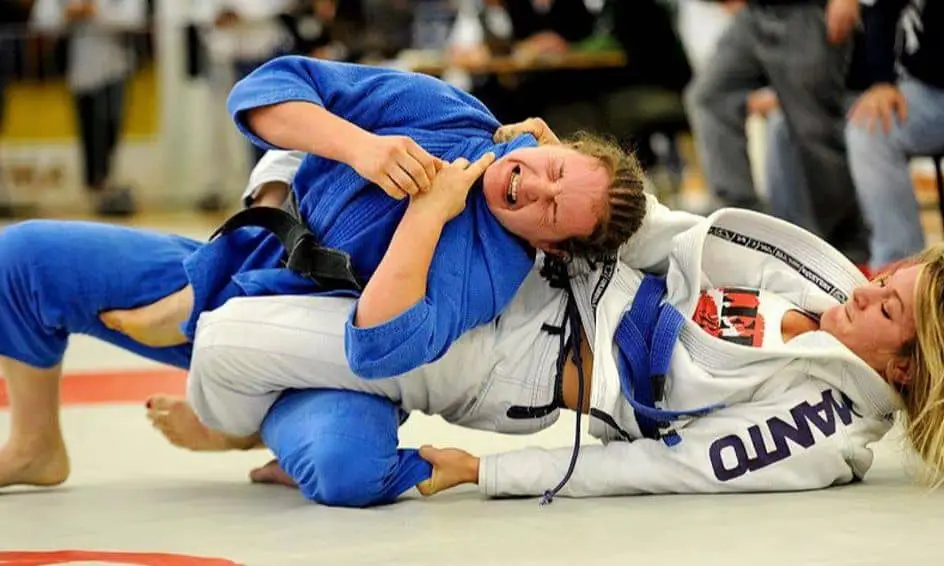
It isn’t just the length of time that a blue belt has been training that causes them to become bored and quit. A big factor is that it becomes increasingly difficult to improve which is discouraging.
When you are a new white belt you can just show up to training, retain a little bit of information, drill the technical with suboptimal technique and still be making huge advancements every week.
Unfortunately, this only lasts for so long. After training BJJ for 2 years your fundamentals are pretty solid and you have a decent understanding of the sport. To make big improvements in your BJJ game is not just as simple as showing up and going through the motions.
If you want to keep improving you have to be dedicated, focused and really think about the sport. Training 2 laid back sessions a week is not going to cut it.
Many BJJ blue belts are not willing to put in the extra effort that is required to continue to make progress. The result is a lot blue belts get annoyed they aren’t improving and decide to hang up their gi and become a beginner in another hobby where fast and easy progress is achievable.
BJJ Blue Belts Suffer Injuries And Quit Jiu Jitsu
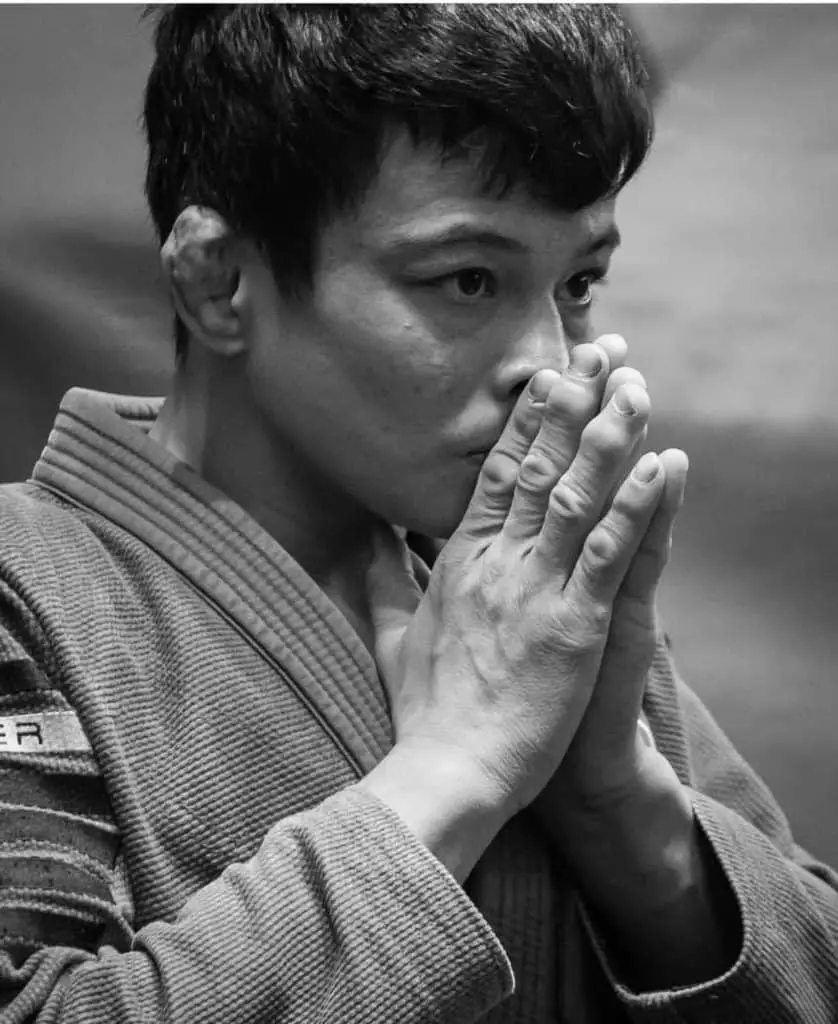
Injuries are extremely common in BJJ. 90% of BJJ practitioners who have trained Jiu Jitsu for at least a year have suffered an injury. Most injuries in BJJ are minor but serious ligament and muscle tears, disolactions and herniated discs are not uncommon.
For many enthusiastic BJJ practitioners having injuries stack up on top of each other is enough for them to quit the sport for good.
For example, who in their right mind would continue training in BJJ as a hobby if they tear their ACL, go through months only to rip their shoulder shortly after returning to the mats.
One serious injury is usually enough for a lot of BJJ blue belts to retire prematurely especially those who work manual jobs and can’t afford to lose a paycheck due to their unusual hobby.
It doesn’t just have to be a serious injury to make a blue belt quit. Small injuries piling up and the inability to recover is a major cause behind the over supply of used blue belts on sale.
BJJ can really take its toll on your joints. It is common for BJJ athletes to complain about sore fingers, wrists, necks, shoulders, knees and backs. A lot of blue belts are sick of being sore and run down all the time. They don’t want to feel twice their age and struggle to get up in the morning.
Once they leave Jiu Jitsu their bodies typically recover and they start feeling much better, leading to a permanent absence from the academy. Only the crazy decide to again sacrifice their health for BJJ and return to the mats.
BJJ Blue Belts Have Work And Family Commitments And Can’t Train Jiu Jitsu

For many people things that are more important than BJJ consume their time, forcing them off the mats. The most common time drains are work and family obligations.
If you are working 12 hour days and have a young family that needs your attention it is going to be very difficult for you to find the time for a hobby. This is not to say it is not possible to be work a lot, spend time with your family and train BJJ regularly. You just have to be disciplined with your time which lots of blue belts aren’t able to do.
Another leading cause of blue belts fading into the distance is them getting a girlfriend or a wife. Many blue belts have needy partners that are not ok with them spending so much time on their hobby. This often leads to initially a drop in training volume before quickly spiralling into a permanent leave from the Jiu Jitsu academy.
On the surface it may seem like blue belts dropping like flies and quitting is some unexplainable mystery but when you dig a little deeper the reasons become pretty obvious. Blue belts quit Jiu Jitsu because they either become bored with the sport, struggle to improve, suffer too many injuries or life commitments leave no time to train.
